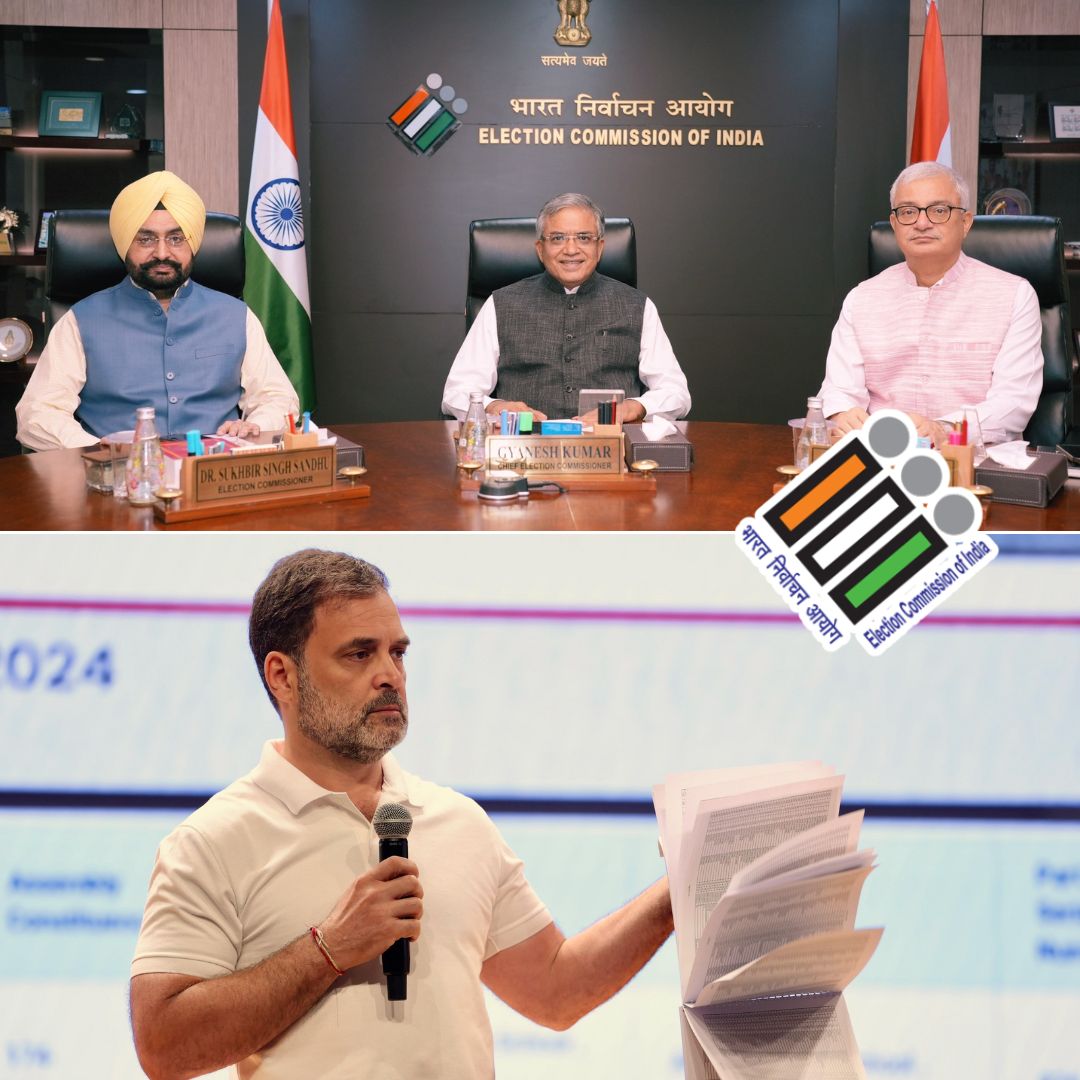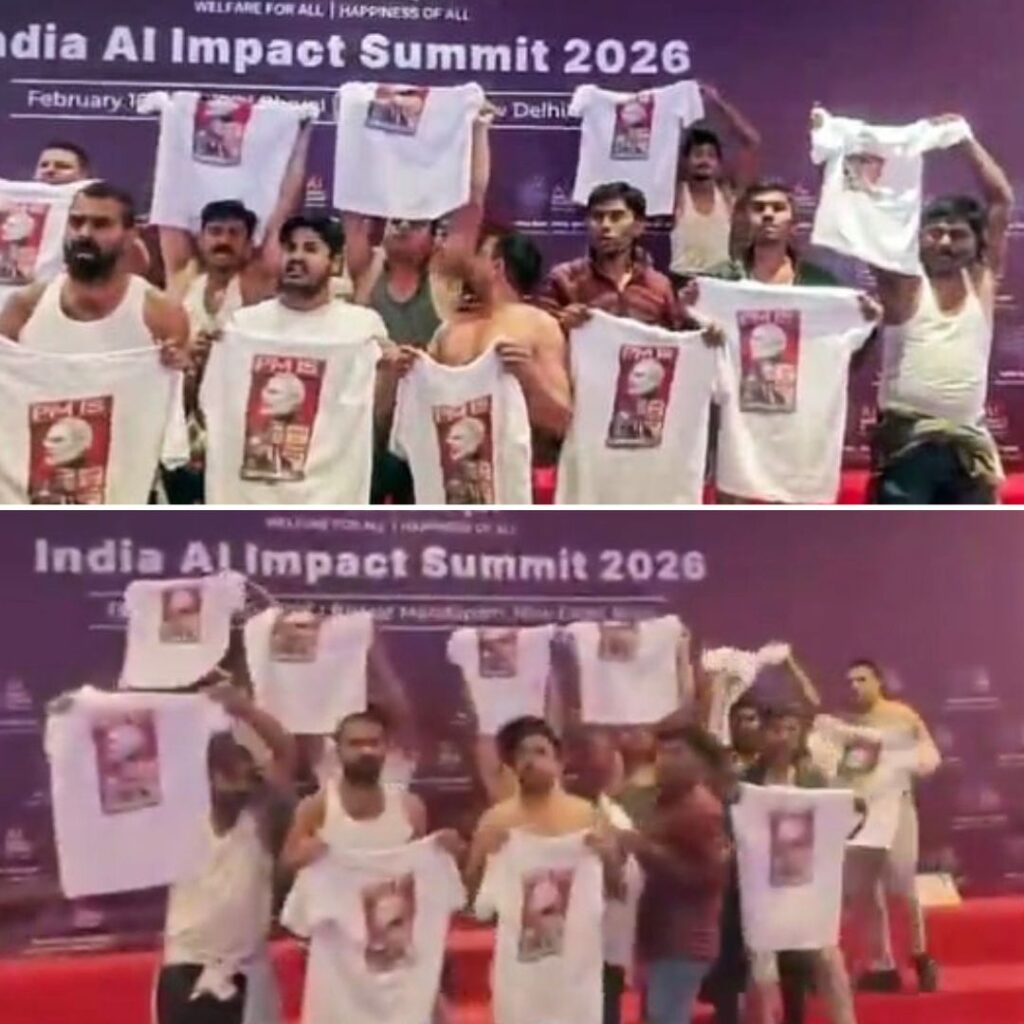The political tension between the Election Commission of India (ECI) and Congress leader Rahul Gandhi has intensified after the Chief Election Commissioner (CEC), Gyanesh Kumar, gave Gandhi a strict seven-day deadline to either submit a sworn affidavit providing evidence for his “vote chori” (vote theft) allegations or issue a public apology.
The Election Commission has categorically rejected Gandhi’s claims, calling them baseless and harmful to democracy.
CEC’s Firm Stand: Evidence or Apology
On August 17, 2025, CEC Gyanesh Kumar publicly addressed the controversy surrounding Rahul Gandhi’s accusations of electoral malpractices. The crux of Kumar’s message was clear: without credible proof, allegations of vote manipulation are false and damaging.
Kumar emphasised the need for Gandhi to back his statements via an affidavit or retract them through an apology. “We have informed Rahul Gandhi that in the absence of any sworn affidavit, his allegations will stand discredited and treated as an insult to the Constitution and the election process,” Kumar told reporters.
The Election Commission explained that inaccuracies in electoral rolls, such as duplicate names or house numbers marked as zero, should not be conflated with actual vote stealing. The Commission underscored the transparent and multi-layered checks involved in modern Indian elections and stated that every political party is treated equally without bias.
Rahul Gandhi’s Allegations and Political Pushback
Rahul Gandhi initially raised the issue during a press conference on August 7, alleging systemic flaws in the electoral process, particularly highlighting Bihar’s Special Intensive Revision (SIR) of voter lists. Gandhi alleged that the SIR exercise and associated voter data manipulations effectively amounted to “vote chori” aiming to tilt elections in favour of the ruling party.
Since then, Gandhi has maintained his stance through various public statements and actions, including the 1,300 km Voter Adhikar Yatra, a campaign to raise awareness about alleged electoral irregularities in Bihar. He also accused the Election Commission of being complicit in undermining democratic values.
However, the Commission has demanded evidence to support these claims, questioning Gandhi’s refusal to submit an affidavit. Officials also criticised Gandhi for sharing voter photographs without consent and demanding inappropriate measures like polling station CCTV footage, stressing such actions create unnecessary confusion and distrust.
Wider Context: Trust Deficit and Electoral Integrity
This episode reflects a growing trust deficit between some opposition parties and India’s electoral bodies. Opposition leaders have voiced concerns about impartiality and transparency before, but few have provided concrete evidence to substantiate such claims. The Commission’s strong rebuttal signals its intent to uphold its credibility amidst these challenges.
The issue also highlights friction within India’s robust democratic system where constitutional institutions and political actors must continuously negotiate responsibilities and accountability. The Commission’s response aims to restore public faith and discourage the spread of unverified accusations that could destabilise the electoral process.
The Logical Indian’s Perspective
At a time when misinformation and divisive politics threaten democratic institutions worldwide, The Logical Indian stresses the importance of reasoned debate and factual scrutiny. Political leaders play a vital role as watchdogs of democracy, demanding accountability through verified channels. Conversely, institutions like the Election Commission must remain impartial, transparent, and responsive to legitimate concerns.
Press Conference by the Election Commission of India today
— Election Commission of India (@ECISVEEP) August 17, 2025
🗓️ Date & Time: Sunday, August 17, 2025 | 3:00 PM
📍 Venue: National Media Centre, New Delhi
▶️ Watch live at : https://t.co/tmFx5kRMTg












